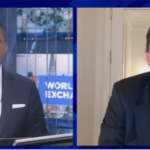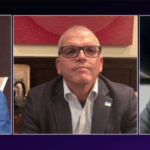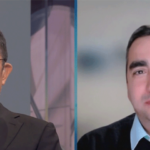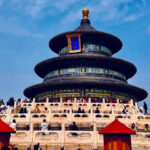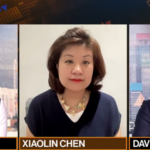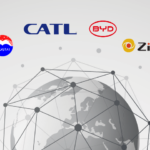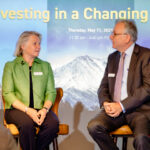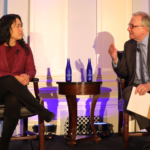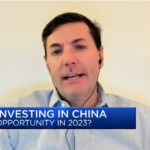President Xi Jinping’s Visit to the United States
What the Historic Trip Means for Global Investors
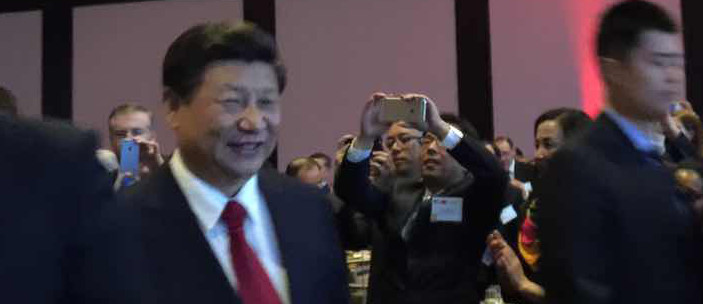
On September 22, Chinese President Xi Jinping commenced his historic weeklong visit to the United States with a speech at the Westin Hotel in Seattle. Annie Zhou (梁周洋), founder of Universal Pacific Advisors, and a longtime KraneShares collaborator, was in attendance and offered us her thoughts on Xi’s speech and the significance of the Chinese President’s visit for global investors.
President Xi’s Speech in Seattle
At the reception and dinner for President Xi we heard welcoming speeches by Jay Inslee, Governor of Washington State, Mark Fields, Chair of the U.S. China Business Council and CEO of Ford Motor Company, Penny Pritzker, U.S. Secretary of Commerce, Carla Hills, Chair of the National Committee on US-China Relations, Ed Murray, Mayor of Seattle, Gary Locke, former Ambassador to China, and finally former Secretary of State, Henry Kissinger, who introduced the Chinese President.
When President Xi took the podium, he began by thanking Henry Kissinger for his work in helping to open diplomatic relations between the United States and China. He continued by telling a story about living in a rural village during his youth. “We hardly had a bite of meat in months,” President Xi stated in reference to the poor living conditions in the village. While China has made great strides to lift “1.3 billion people from a life of chronic shortage” in recent decades, there is still work to be done. President Xi stated that he has visited many poor rural families in China and has seen how their lives could continue to improve. He noted, “China is still the largest developing country in the world”.
With this in mind, he set the tone for the evening’s speech, talking about mutual cooperation particularly in the areas of economic advancement, energy efficiency, environment, and global peace and prosperity as part of the two centenary goals: to double the 2010 GDP and per capita income of the Chinese people and complete the building of a prosperous society by 2020, noting that it shall be a democratic, culturally advanced, and harmonious modern socialist country. He expressed support for Non-Governmental Agencies operating lawfully in China, working together to combat cyberattacks and terrorism, and the valuable contribution of international organizations, as well as China’s growing participation in them.
President Xi also acknowledged recent volatility in the Mainland markets stating that the Chinese government intervened to stabilize the market and contain systemic risk. He noted that China is not alone in intervening in the markets in times of volatility and that “mature markets in various countries have tried similar approaches.” He stated that calm has been restored and that “China’s stock market has reached the phase of self-recovery, and self-adjustment”. Finally President Xi commented on the country’s recent move to liberalize the way it values its currency, the renminbi (RMB). He explained how market forces would determine the price of the RMB and he reiterated, “there is no basis for continuous depreciation of the RMB.”
In concluding his speech President Xi mentioned his admiration for the city of Seattle, as well as for the American culture and tradition of innovation and entrepreneurship. He invoked thoughts of nostalgia for American values embodied in works such as Thomas Paine’s Common Sense, Hemingway’s The Old Man and the Sea, as well as papers by George Washington, Abraham Lincoln, and Franklin Roosevelt, which reflect personal character, strength, and the struggle for success. He also supports the future of US-China relations through increased tourism, educational exchanges, and training. He ended by quoting Dr. Kissinger in his book World Order “each generation will be judged by whether the greatest, most consequential issues of the human condition have been faced.”
President Xi Focuses on “New China” Sectors
President Xi’s visit comes at a time when China is experiencing a major shift in its economy. In 2012 China’s services sector overtook its industrial sector as the largest contributor to GDP for the first time in the country’s history. China’s economy is diversifying away from the manufacturing-based model that it traditionally relied on to one dominated by “new China” sectors including ecommerce, technology, healthcare and clean energy. The depth of the diversification that China’s economy has achieved was highlighted during President Xi’s visit. President Xi brought together leaders from some of the most important Chinese and U.S. companies to discuss the development of China’s economy and increased cooperation between both nations.
China’s new economy was reflected by the broad range of attendees of the Paulson institute’s U.S.–China Business roundtable, which was organized specifically for President Xi’s visit.
U.S.–China Business Roundtable Attendees
| U.S. CEOs | Chinese CEOs |
| Mary Barra, General Motors | Ma Yun (Jack Ma), Alibaba |
| Jeff Bezos, Amazon | Lu Guanqiu, Wanxiang |
| Warren Buffett, Berkshire Hathaway | Ma Huateng (Pony Ma), Tencent |
| John Chambers, Cisco Systems, Inc. | Yang Yuanqing, Lenovo |
| Tim Cook, Apple Inc. | Wang Yusuo, ENN Energy Holdings |
| Dave Cote, Honeywell | Ma Zehua, COSCO |
| Bob Iger, The Walt Disney Company | Guan Qin, CSCEC |
| Ellen Kullman, DuPont | Wan Long, Shuanghui Group |
| Andrew Liveris, The Dow Chemical Company | Tian Guoli, Bank of China |
| Satya Nadella, Microsoft | Jiang Jianqing, Industrial and Commercial Bank of China |
| Dennis Muilenberg, The Boeing Company | Pan Gang, Yili Group |
| Tom Pritzker, Hyatt Hotels Corporation | Li Yanhong (Robin Li), Baidu |
| Ginni Rometty, IBM Corporation | Liang Haishan, Haier Group |
| Howard Schultz, Starbucks | Wang Jinshu, Yuhuang Chemical Industry Group |
| Li Qiang, Tianjin Pipe (Group) Corporation |
One area of particular focus was internet and ecommerce. This was evidenced by the roundtable’s attendees, which included the CEOs of Baidu, Alibaba, Tencent and Lenovo on the Chinese side and the CEOs of Amazon, Apple, Microsoft and IBM on the U.S. side.
Technology was such an important theme for Xi’s visit that the first stop on his trip was Seattle, chosen in part for its close proximity to Microsoft’s headquarters. On the 23rd, President Xi attended the two-day annual U.S.–China Internet Industry Forum, held at the Microsoft campus in Redmond, just outside of Seattle. The forum has already proved effective in increasing cooperation between Chinese and U.S. tech firms. After the event’s conclusion Baidu and Microsoft announced a partnership where Baidu will promote Windows 10 operating system to its users in China in return for Microsoft making Baidu the default search engine for its new Edge Browser in China. After attending the U.S.–China internet forum President Xi had a private dinner with Microsoft founder Bill Gates.
With all the emphasis President Xi’s visit has placed on technology and the “new China” sectors of its economy, we believe it is surprising that many investors still have a limited exposure to these sectors. MSCI, a leading provider of index solutions globally, determines the investment universe for trillions of dollars in active and passive funds around the world. MSCI’s definition of China as of August 31, 2015 is 155 companies listed in Hong Kong. This definition ignores the mainland stock exchanges, and also currently excludes U.S.–listed Chinese internet companies as well, though they will be included starting December 1st. The index’s current composition is heavily geared toward the traditional sectors of China’s economy, which we define as those reliant on exports, financials and heavy industry.
We believe the most important sectors for investors going forward will be the types of companies that make up the “new China”, which President Xi highlighted in his speech and throughout his visit to the United States. We are heartened to see that many U.S. CEOs share our sentiment and are eagerly seeking out opportunities in China’s domestic market.


